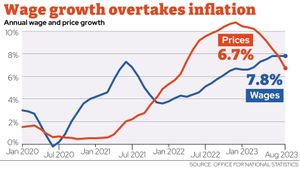New Zealand outperformed England, seizing control of the third Test match at Seddon Park, Hamilton, and creating significant distance from their rivals by setting them a mammoth target of 658 runs. The match has been marked by exceptional batting performances, particularly from captain Kane Williamson, who scored a brilliant 156 runs. This performance was complemented by aggressive lower-order hitting, pushing England firmly on the back foot.
Having already clinched the series through two remarkable victories over New Zealand in Christchurch and Wellington, the English team faced newfound challenges as they stepped onto the field for the third Test. On day four, New Zealand had already established their command, making it difficult for England to stage any comeback. Williamson, beginning the innings at 50 overnight, continued his stellar form and reached his 33rd Test century with style, showcasing his ability to convert starts to significant scores. He departs from the pitch with his confidence high, having already scored more than England managed combined within their first innings.
Additional contributions came from Daryl Mitchell, who added 60 runs, alongside Tom Blundell and Mitchell Santner, who also made notable scores of 44 and 49, respectively. Their collective efforts allowed New Zealand to amass 453 runs for their second innings, coupled with their first innings score of 347, demonstrating strong batting depth against England’s weary bowling attack.
Tim Southee experienced what can only be described as bittersweet moments, marking his final Test with both joy and disappointment. He commenced with the ball but was caught out after needing just two more sixes for his batting total to reach 100 Test runs. Nevertheless, his bowling prowess shone early as he dismissed Ben Duckett, putting New Zealand on top at 8-1. "It’s been a great couple of days for the lads," Southee commented post-match, expressing his appreciation for the opportunity to play for New Zealand. "It’s been a big part of my life and such an honour to do what I do," he added, reflecting on his Test career as he neared its closure.
While New Zealand prospered with bat and ball, England’s struggle became evident quickly. For the hosts, Matt Henry exerted pressure immediately, sending Zak Crawley back to the pavilion after overturning the original LBW decision, only to succeed on his next attempt. By the time the lunch break arrived on the fourth day, England found themselves at 193 for 5, still trailing significantly behind New Zealand’s hefty asking rate.
Joe Root emerged as England's shining beacon, reaching another stellar half-century. Unfortunately, he fell victim to Mitchell Santner’s controlled bowling, leaving England reeling. Adding to their woes was the injury concern surrounding skipper Ben Stokes. Following tenacious play, he expressed uncertainty about his return as he nursed his left hamstring injury sustained earlier during his bowling spell. Reports indicate he might bat if necessary for his team, highlighting the unpredictable nature of the match.
Jacob Bethell, who produced commendable performances throughout the series, also found himself back to the pavilion with 76 runs as Tim Southee continued to take wickets to bolster New Zealand’s chances. Bethell’s dismissal, along with Root’s and other key players falling short, cast doubts on England’s ambitions to chase the formidable target set by New Zealand, forcing them to stare down the barrel at 465 runs behind.
New Zealand displayed admirable skill and patience during their innings, with Williamson not only playing fluently but also bringing up his century at lightning speed—off just 137 balls. His majestic knock included powerful boundaries, including sixes against part-time spinner Jacob Bethell, who finished the innings with the painful distinction of bagging three wickets during his debut Test series. Williamson’s achievement marked his superb record at Seddon Park continuing, and his conversion from half-centuries to centuries is phenomenal—now boasting 33 centuries from 37 fifties.
With just two full days remaining for play and England at 18-2, it became evident their chances seemed almost impossible, with the record for the highest successful run chase being 418-7, set by the West Indies against Australia back in 2003. England's mounting setbacks and New Zealand’s unquestionable strength put the latter firmly on course for victory.
England has no choice but to regroup, analysis, and strive for resilience as they confront the remaining innings. With their current standing and increased challenges, it’s clear they have no room for error. The series has already been secured on their part, but the urgency to restore pride looms larger as they attempt to conjure momentum against what is turning out to be a formidable New Zealand side. The current match ought to remind England of the untold pressures of international cricket as they strive to reverse their misfortunes and emerge victorious once more.



